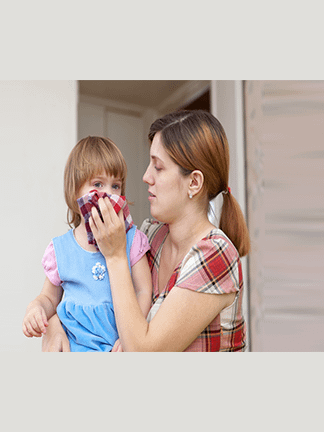Mothers are by default their children's own personal nurses whenever they're under the weather, even with something seemingly minor as the sniffles. The most common upper respiratory infection may have been sporadically affecting humans for a couple of centuries now, and yet the majority of us still don't know how to quickly stop it in its tracks. Read on to learn how to defeat colds in the shortest possible time--before they wreak more havoc on your little one's overall well-being.
Cold facts
The common cold is an acute and contagious viral infection in the nose, with nasal congestion and mucus formation as its most common symptoms. Colds also affect the sinuses, bronchial tubes, and ears. A cold may be accompanied by:
- coughs
- headache
- fever
- sneezing
- itchy/sore throat
- hoarseness of voice
- malaise, which means generally not feeling well
Depending on its severity, colds can last from 2 days to 2 weeks. Children can catch the cold 6 to 12 times a year. Many times colds don't just go away without any proper treatment. Aside from being contagious, complications such as otitis media (ear infection), asthma, sinus infection, and pneumonia can ensue if colds are not treated early or effectively.
Due to misconceptions, antibiotics have become the go-to drug for various infections, regardless of the type of pathogenic microorganism that caused the infection. As mentioned earlier, colds are viral--not bacterial--in nature. About 50% of colds are caused by the rhinovirus. Other viral strains that contribute to the development of the common cold include the coronavirus, respiratory syncytial virus, adenovirus, metapneumovirus, and the influenza and parainfluenza viruses. As an antibiotics are not meant for viruses, using an antibiotic would therefore only be useless in stopping your child's cold.
The dangers of antibiotic overuse
The biggest problem with over-administration of antibacterial drugs is the phenomenon of antibiotic resistance, wherein pathogenic bacteria get so used to the effect of antibiotics to the point of getting desensitised to the drugs. Harmful bacteria then become stronger, making them more difficult to kill.
Antibiotic drug overuse also negatively impacts your child's immune system in other ways, like decimating the population of his good bacteria. You have heard it from your paediatrician: the younger your child is, the frailer his immune system is.
Gut microflora imbalance increases your child's susceptibility to infections due to increase in the number of harmful bacteria. Protecting your child's microbiome should therefore be one of your most important health priorities.
Friendly bacteria:
- help break down your child's food, promoting optimal extraction and absorption of vital, health-promoting food nutrients.
- help protect your child by lowering his risk of inflammatory conditions such as irritable bowel disease
- may have an impact on children's cognitive abilities in the future.
The bottom line: use antibiotics judiciously on children and only with your doctor's advice and prescription. Help your child's immune army to flourish by minimizing anything that would non-selectively destroy bad bacteria with the good ones. Your chances of raising a tall, strong, and smart child are simply much higher if you keep his tummy healthy and happy.
Wanted: A safe, targeted solution for children's colds
The good news is that there are natural, steroid-free, drug-free alternatives such as BETADINE™ Kids Cold Defence Nasal Spray for children aged one year and above. It has been proven to eliminate 99% of viruses that cause upper respiratory tract infections such as colds and flu. The gentle yet potent nasal spray can also shorten the duration of colds by up to 2 days.
The following tips can be very helpful in further managing your child's cold.
Treat him like a little royalty by preparing a healthy yet yummy feast. It's more crucial than ever to feed your child well when he's sick. Viruses feed on sugar, so hold the refined sweets and processed sugary drinks. Whip up something nutritious, comforting, and easy to digest such as homemade vegetable soup.
Make sure that your child drinks sufficient amounts of clean water to thin out mucus, prevent dehydration, and help his body flush out toxins.
Offer your child ample amounts of tissue and train him to blow his nose each time he feels something is about drip from his sniffer. Smaller children have the tendency to sniff back their mucus, which doesn't help heal their colds at all. Dispose all his snot rags as often as you can to prevent the virus from spreading on his bed. Wash with a natural antibacterial soap containing tea tree oil to disinfect your hands.
Encourage him to take naps to help his immune system fight and recuperate from the infection. Make sure your child is comfortable as he rests. The temperature in his room should neither be too warm or too cold.

